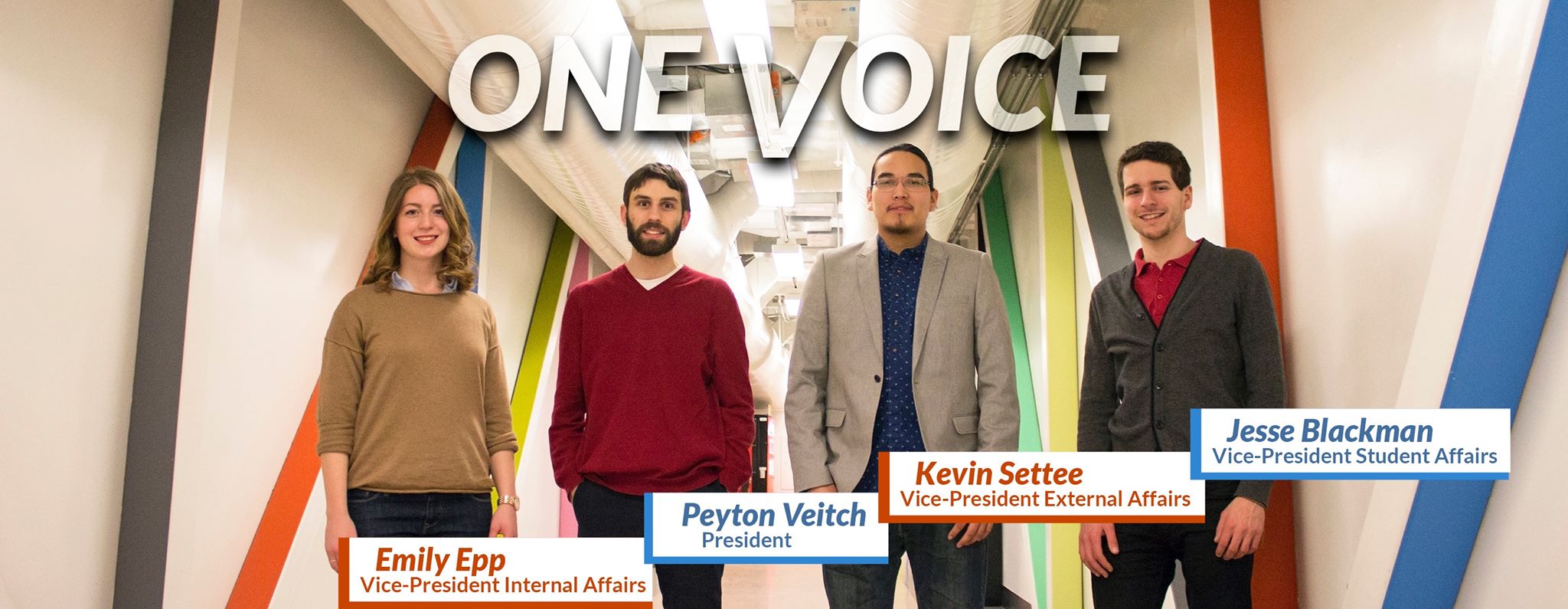Terry Duguid, federal Liberal candidate for Winnipeg South, encapsulated Thursday’s UMSU-hosted climate debate perfectly during one of his answers: “Well I find myself, as usual, agreeing with most of what my colleagues said.”
The local federal candidate debate took place Oct. 3 at IQ’s in UMSU University Centre. It was part of a larger national event branded 100 Debates on the Environment, hosted by an organization of the same name. The national event was made up of 100 nonpartisan candidate debates on the environment taking place throughout the country on the same day.
The U of M debate was moderated by Kristina Hunter, a senior instructor at the U of M and chair of the university’s sustainability committee. It featured Winnipeg South incumbent and Liberal Duguid, Green party candidate Paul Bettess, and NDP candidate Jean-Paul Lapointe.
The absent right
The district’s Conservative candidate, Melanie Maher, did not respond to UMSU’s repeated attempts to extend an invitation, which they took as a refusal.
UMSU did not invite People’s Party of Canada (PPC) candidate Mirwais Nasiri due to the party’s climate change denial, rejection of the findings of the Intergovernmental Panel on Climate Change and lack of belief in the federal government’s role in reducing greenhouse gas emissions and supporting green technology.
Hunter said UMSU determined Nasiri’s presence would “detract from engaging in constructive dialogue around environmental solutions.”
With neither the district’s Conservative party candidate nor its PPC candidate in attendance, the debate ended up quite left-sided.
As the event’s name suggests, the questions were largely related to environmental policy and climate action. The closest the three candidates came to any sort of heated debate was on topics such as the Trans Mountain pipeline expansion, a topic for which Lapointe and Bettess poked at the Liberal government. Despite this, the two more often went after the absent Conservative candidate.
“The only voice you’re not hearing is the voice that probably should be here the most,” said Lapointe, “because over there on the right, they want to tell us that it’s not to be believed and that the only way for us to prosper is to allow polluters to go continually unsanctioned.”
With Duguid and his party both up for re-election, and the Liberals arguably the most moderate of the three parties, he spent most of his speaking time either deflecting jabs from his opponents toward the Conservatives, or directly pointing the finger at the Tories himself. He often contrasted the current Liberal government with the previous, Stephen Harper-led Conservative adminsitration.
The flow of the debate was ensconced in one of the opening questions. When asked what the government can do to reduce water pollution and related natural disasters, Duguid called the issue a “huge challenge” and highlighted Liberal investment into protecting Lake Winnipeg.
Lapointe called for more regulation on agriculture, saying it was a failure of the free market system, while Bettess said he would like to bring back the Prairie Farm Rehabilitation Administration (PFRA), a branch within Canada’s agriculture department that focused on sustainable development axed under the Harper government.
Duguid then responded to Bettess in one of the few rebuttals of the day. Rather than arguing, he wholeheartedly agreed with Bettess’s answer, noting that the Conservative government had been responsible for the PFRA’s demise and mentioning that Liberals plan to create a new water agency to fulfill a similar purpose.
“The Conservative government blew that up with the stroke of a pen,” he said.
“They had managed our lands and waters for 70 years since the Great Depression.
“Unfortunately, our Conservative opponent isn’t here to answer for that.”
Even with Lapointe’s and Bettess’s occasional punching up at Duguid, most questions were answered by the three in relatively uniform fashion. So few rebuttals were triggered that the debate ran 20 minutes short, even with an extended open floor period.
All prepared questions — including four directly from 100 Debates and others submitted by students and student groups — had run out.
Aside from the open floor questions asked near the end of the event, all questions had been prepared and sent to the candidates beforehand. The four questions from 100 Debates were asked at each of the national debates.
Not all questions resulted in echoed answers all around. When discussing how the government should pay for commitments around climate action and green research, each candidate approached the question differently.
Bettess called to cancel the Trans Mountain pipeline project and reallocate its funding, to end subsidies to oil companies and close tax loopholes for the rich.
Duguid listed a number of different funding allocations the government has already made, including $28.7 billion to public transport.
Lapointe answered more directly.
“In a word — brace yourselves — taxes.” he said.
“That’s the only real answer to that question,” he added, mentioning NDP leader Jagmeet Singh’s “supertax” plan to increase taxes on the wealthiest one per cent of Canadians by one per cent and reducing oil subsidies.
“The only way to do it is if we all pitch in together,” he said. “And at the federal level, tax is how we do that.”
Positive politics
The debate was streamed on UMSU’s Facebook page and is still available in its archives.
Michael Lunn, who attended, said that while the debate had not shifted his vote, it gave him “a bit more to think about.”
“It definitely helped shine light on how some of the other candidates and parties and what their policies were,” he said.
“It was cool having the candidates come out, interact with the students a bit, take some of their questions.”
Ben Mercado-Cruz said he was happy to see a friendlier side of politics.
“I thought it really highlights how positive politics can be very productive.” he said.
“Mudslinging really has no place in a constructive democracy so that was really neat to see.”
Like Duguid, Lapointe and Bettess, he acknowledged that there was a hole left by the absent candidates saying it “would be interesting to see how the dynamic would change if other [candidates] had been present.”





